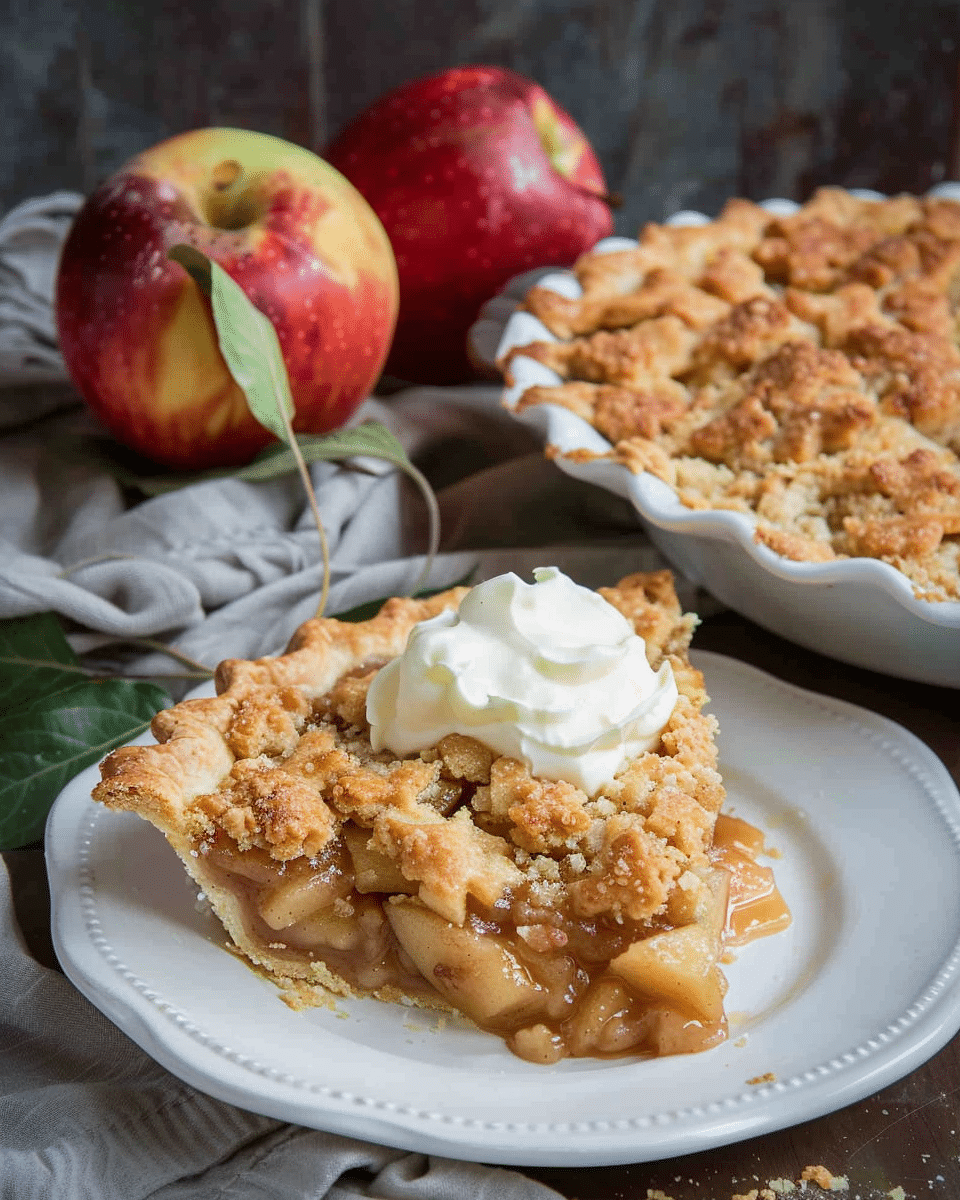Beans, versatile and packed with nutrients, have been a staple in diets worldwide for centuries. They are praised for their health benefits and are often recommended by nutritionists. But the question remains: Can one incorporate beans into their daily diet without any repercussions? This article aims to shed light on this topic, providing a balanced view on the pros and cons of daily bean consumption, nutritional insights, expert opinions, and practical tips on how to enjoy beans in your meals.
– Can I Eat Beans Every Day?
Beans are a powerhouse of nutrition, offering a blend of protein, fiber, vitamins, and minerals. Including them in your daily diet can contribute to overall health and wellbeing. However, like with any food, moderation and variety are key. This section will delve into how you can safely enjoy beans every day, ensuring a balanced diet.
Nutritional Breakdown of Beans
When it comes to packing a nutritional punch, beans are a formidable force. They’re not just a staple in various cuisines around the world, but also a cornerstone in the foundation of a balanced diet. Now, let’s take a closer look at what exactly makes beans such a nutritional powerhouse.
Types of Beans and Their Nutrients
Beans come in a variety of shapes, sizes, and colors, each bringing its own unique set of nutrients to the table. For instance, black beans are rich in antioxidants, while kidney beans are a great source of iron. Chickpeas, often found in Mediterranean and Middle Eastern dishes, are high in protein and make an excellent meat substitute for vegetarians and vegans. Lentils, another popular type of bean, are not only high in protein but also in fiber, which can aid in digestion and help to maintain a healthy weight.
It’s not just about what’s inside the beans, though; it’s also about what they lack. Beans are low in fat and calories, making them a healthy choice for those looking to manage their weight. Additionally, they’re naturally gluten-free, which is a big plus for those with gluten sensitivities or celiac disease.
Health Benefits of Beans
The health benefits of beans are extensive and well-documented. Their high fiber content is a boon for digestive health, helping to prevent constipation and promote regularity. The soluble fiber in beans can also help to lower cholesterol levels, reducing the risk of heart disease.
Furthermore, beans are a low-glycemic food, meaning they have a minimal impact on blood sugar levels. This makes them an excellent dietary choice for individuals with diabetes, or for anyone looking to maintain stable energy levels throughout the day.
On top of all this, beans are a fantastic source of essential nutrients like folate, iron, magnesium, and potassium, all of which play vital roles in overall health and wellness.
Recommended Daily Intake
So, how much beans should one aim to eat on a daily basis? The Dietary Guidelines for Americans recommend that adults consume at least one and a half cups of beans per week. This equates to about three servings, with one serving being defined as half a cup of cooked beans.
Incorporating beans into your diet is easier than you might think. They can be added to soups, salads, and stews, or simply enjoyed on their own with a sprinkle of seasoning. For those looking to increase their bean intake, starting slowly and gradually adding more beans to your diet can help to minimize digestive issues such as gas and bloating.
Pros of Eating Beans Everyday
When delving into the world of legumes, it’s clear that beans offer a treasure trove of benefits that can contribute significantly to overall health and well-being. Let’s explore the various advantages that come with incorporating beans into your daily diet.
High Nutritional Value
Beans are incredibly nutrient-dense, providing a rich source of protein, fiber, vitamins, and minerals. Including them in your daily diet ensures you’re receiving essential nutrients that play a crucial role in maintaining good health. Furthermore, they serve as a fantastic plant-based protein option, making them a popular choice among vegetarians and vegans.
Aids in Digestive Health
Due to their high fiber content, beans are excellent for promoting healthy digestion. They help prevent constipation and ensure regular bowel movements. Additionally, the fiber in beans acts as a prebiotic, providing nourishment for the beneficial bacteria in the gut, which is vital for maintaining a healthy gut microbiome.
Contributes to Heart Health
Regular consumption of beans has been linked to reduced risk of heart diseases. The fiber, antioxidants, and other nutrients found in beans contribute to lower levels of cholesterol, blood pressure, and inflammation, all of which are risk factors for heart disease. Moreover, their low glycemic index makes them beneficial for heart health.
Supports Weight Management
Beans have properties that make them effective for weight loss and maintenance. They are low in calories yet high in protein and fiber, which can increase feelings of fullness and reduce calorie intake at subsequent meals. This makes beans a superb addition to a weight management plan.
Helps in Managing Blood Sugar Levels
The high fiber content in beans also plays a role in stabilizing blood sugar levels. They have a low glycemic index, meaning they have a slower, more gradual impact on blood sugar levels, which is particularly beneficial for individuals with diabetes or those looking to manage their blood sugar levels.
Rich in Antioxidants
Beans are a fantastic source of antioxidants, which help to fight against oxidative stress and inflammation in the body. These antioxidants contribute to the prevention of chronic diseases and promote overall health.
Environmentally Friendly Protein Source
In addition to their health benefits, beans are also an environmentally sustainable protein source. They have a lower carbon footprint compared to animal protein sources, and they contribute to soil health through their ability to fix nitrogen.
Related:
- Grandma Browns Baked Beans
- How To Get 100g Protein Without Meat?
- The Ultimate Guide to Mustard In Baked Beans
Cons of Eating Beans Everyday
When it comes to incorporating beans into your daily diet, it’s important to weigh the pros and cons to make an informed decision. While beans are undeniably packed with nutrients and offer numerous health benefits, there are also potential downsides to eating them every day. Let’s delve into some of the cons associated with daily bean consumption.
Digestive Discomfort
One of the most common issues people face when eating beans regularly is digestive discomfort. Beans are high in fiber and contain oligosaccharides, a type of sugar that the human body cannot fully break down. As a result, these sugars are fermented by bacteria in the large intestine, which can lead to gas and bloating. For individuals with sensitive digestive systems or conditions like Irritable Bowel Syndrome (IBS), consuming beans every day may exacerbate these symptoms.
Phytic Acid Content
Beans contain phytic acid, a naturally occurring compound that can bind to minerals such as iron, zinc, and calcium, reducing their absorption in the body. While this is not a concern for those with a well-balanced diet, it could potentially lead to mineral deficiencies in individuals who rely heavily on beans as a primary protein source, particularly in vegetarian and vegan diets.
Potential for Lectin Intake
Lectins are a type of protein found in many plant foods, including beans. Some types of lectins can be harmful when consumed in large quantities or when beans are undercooked. Proper cooking and preparation of beans can reduce lectin content significantly, but it’s important to be mindful of this, particularly when consuming beans daily.
Caloric and Carbohydrate Content
While beans are a low-fat source of protein, they are also relatively high in calories and carbohydrates. For individuals who are monitoring their calorie or carbohydrate intake, particularly those with diabetes, it’s crucial to take this into account when incorporating beans into their daily diet.
Potential for Allergic Reactions
While not common, some individuals may be allergic to beans or other legumes. Symptoms can range from mild (such as hives or gastrointestinal discomfort) to severe (such as anaphylaxis). Those with known legume allergies should avoid beans altogether.
Digestive Health and Beans
Beans are a wonderful addition to your diet, especially when considering the positive impacts they can have on your digestive health. Rich in fiber and a variety of nutrients, beans play a pivotal role in promoting a healthy digestive system.
Beans are abundant in both soluble and insoluble fiber. Soluble fiber absorbs water and forms a gel-like substance in the digestive tract, aiding in the smooth passage of food through the intestines. This type of fiber can also help to lower blood cholesterol and stabilize blood sugar levels.
On the other hand, insoluble fiber adds bulk to the stool and helps food pass more quickly through the stomach and intestines, reducing the risk of constipation. This regular bowel movement is crucial for maintaining a healthy digestive system.
Moreover, beans contain resistant starch, a type of carbohydrate that acts like fiber. Resistant starch feeds the healthy bacteria in the colon, contributing to a balanced gut microbiome. A healthy gut microbiome is essential for proper digestion and absorption of nutrients.
However, it’s important to note that the high fiber content in beans can also lead to bloating and gas for some people. Introducing beans gradually into your diet and drinking plenty of water can help mitigate these effects. Additionally, soaking beans before cooking and thoroughly rinsing canned beans can help reduce the oligosaccharides, compounds that can cause gas.
Incorporating a variety of beans into your diet can also provide different types and amounts of fiber, promoting a diverse and balanced gut microbiome. A well-balanced gut microbiome has been linked to numerous health benefits, including improved digestion, a reduced risk of certain chronic diseases, and even better mental health.
Weight Management and Beans
When it comes to managing weight, the foods we choose to include in our diet play a crucial role. Beans, with their unique nutritional profile, can be a valuable component of a weight management plan. Let’s explore how beans can contribute to weight maintenance and loss, and how to incorporate them into your diet effectively.
High in Fiber: A Boon for Weight Loss
Beans are incredibly high in fiber, a nutrient that is essential for good health. Fiber helps to keep you feeling full and satisfied after eating, which can prevent overeating and snacking between meals. The soluble fiber in beans also slows down the digestion and absorption of food, leading to a more gradual rise in blood sugar levels. This not only helps to control hunger but also stabilizes energy levels throughout the day, reducing the likelihood of reaching for sugary snacks as a quick energy boost.
Protein-Packed and Muscle Friendly
In addition to fiber, beans are a fantastic source of protein. Protein is a key nutrient for weight loss because it requires more energy to digest compared to fats and carbohydrates. This means that you burn more calories processing protein than other types of food, a phenomenon known as the thermic effect of food (TEF). Furthermore, protein helps to preserve muscle mass, especially important during weight loss, as it ensures that the majority of weight lost comes from fat, not muscle.
Low in Calories and Fat
Beans are naturally low in calories and fat, yet high in nutrients, making them a nutrient-dense food choice. This means that you can eat a substantial portion of beans without consuming a lot of calories, providing a sense of satiety and fullness. Including beans in your meals can lead to a reduced calorie intake overall, contributing to weight loss and maintenance.
Versatility in Meals
One of the great things about beans is their versatility in meals. They can be included in a variety of dishes, such as soups, salads, stews, and casseroles, or simply enjoyed on their own. This versatility ensures that you can incorporate beans into your diet in a way that suits your taste preferences, making it easier to stick to a healthy eating plan.
A Note on Portion Control
While beans have many properties that make them an excellent food choice for weight management, it’s important to practice portion control. Due to their high fiber and protein content, a little goes a long way in terms of providing satiety. Paying attention to portion sizes ensures that you reap the benefits of beans without overconsuming calories.
Beans and Heart Health
Beans are not just a tasty addition to your meals; they are also a powerhouse of nutrients that can play a crucial role in maintaining a healthy heart. Their unique nutritional profile provides various benefits that contribute to cardiovascular well-being.
Firstly, beans are rich in soluble fiber, which has been proven to help lower levels of bad cholesterol (LDL cholesterol) in the blood. When you consume beans, the soluble fiber binds to cholesterol particles and helps remove them from your body, thus reducing the overall cholesterol levels and the risk of heart disease.
Additionally, beans are a great source of folate, magnesium, and potassium—all nutrients that play a role in heart health. Folate helps to break down an amino acid called homocysteine, high levels of which are associated with an increased risk of heart disease. Magnesium and potassium help to regulate blood pressure, a key factor in maintaining a healthy heart.
Moreover, beans have a low glycemic index, meaning they cause a slower, more stable rise in blood sugar levels. This is beneficial for heart health as high spikes in blood sugar levels can lead to damage to arteries and an increased risk of heart disease.
In conclusion, incorporating beans into your diet can be a strategic and delicious way to support heart health. Their ability to lower cholesterol levels, provide essential nutrients, and regulate blood pressure make them a valuable addition to a heart-healthy diet.
Read: Portuguese Bean Soup Recipe
Beans and Diabetes
Beans are a fantastic food choice for people with diabetes or anyone looking to manage their blood sugar levels. Their low glycemic index and high fiber content make them an ideal option for maintaining stable blood sugar levels.
The high fiber content in beans slows down the absorption of sugar in the bloodstream, leading to a slower and more gradual rise in blood sugar levels after meals. This can be especially beneficial for individuals with diabetes, as managing blood sugar levels is a crucial aspect of their daily life.
In addition to their low glycemic index, beans are also a great source of protein, which has been shown to have a stabilizing effect on blood sugar levels. Protein takes longer to digest than carbohydrates, leading to a slower release of sugar into the bloodstream.
Moreover, beans provide various essential nutrients that can help manage diabetes and its associated risks. For example, magnesium, a mineral found in beans, has been linked to a reduced risk of type 2 diabetes. The antioxidants present in beans can also help combat oxidative stress, which is linked to the development of diabetes.
However, it’s important to pay attention to portion sizes and the way beans are prepared. Opting for whole, minimally processed beans and being mindful of serving sizes can help maximize their benefits for blood sugar management.
Culinary Uses of Beans
Beans, with their versatile nature and nutritional benefits, have earned a well-deserved place in kitchens around the world. They are not just a staple in various cuisines but also a culinary chameleon, able to adapt to a wide range of dishes and cooking styles. Let’s dive into the myriad of ways beans can be utilized in the kitchen, transforming meals into nutritious and delicious experiences.
A Global Staple: Beans in Different Cuisines
Beans have been embraced by numerous cultures, each finding unique and mouth-watering ways to incorporate them into traditional dishes. In Mexican cuisine, black beans and pinto beans are often used in burritos, tacos, and as a side dish, seasoned with a blend of spices. The Middle Eastern chickpea has found fame in the form of hummus and falafel, while in Italy, cannellini beans are a key ingredient in the classic Tuscan soup, ribollita.
From Soups and Stews to Salads
Beans lend themselves beautifully to a variety of soups and stews, providing a hearty, satisfying base. They absorb flavors wonderfully, resulting in a rich, depth of flavor. For a lighter fare, beans can be tossed into salads, providing a protein-packed crunch. Whether it’s a warm, comforting bowl of chili or a refreshing black bean and corn salad, beans are a versatile ingredient that can enhance the nutritional value of your meal.
The Perfect Plant-Based Protein
For vegetarians and vegans, beans are an invaluable source of protein. They can be used as a meat substitute in nearly any dish, from burgers to bolognese. Lentils, for instance, can be cooked and used as a base for vegan patties or mixed into pasta sauces for an extra protein punch. Chickpeas can be roasted for a crunchy snack or added to curries for a satisfying, protein-rich meal.
Baking with Beans
Beans in baking? It might sound unconventional, but beans can actually be used as a healthy alternative to flour or fats in baking. Black beans can be puréed and used in brownie recipes for a gluten-free, high-fiber treat, while white beans can be blended into cakes or cookies to add moisture and reduce the need for butter or oil.
Snacking on Beans
For those looking for a nutritious snack, beans have got you covered. Roasted chickpeas make for a crunchy, protein-packed snack, while edamame (young soybeans) can be steamed and lightly salted for a delicious and healthy treat.
A Pantry Staple: Canned, Dried, and Fresh Beans
Beans are available in various forms, each with its own set of culinary uses. Canned beans are convenient and ready to use, perfect for quick meals and snacks. Dried beans, while requiring a bit more preparation, offer a cost-effective and shelf-stable option. Fresh beans, such as green beans or snap peas, can be steamed, sautéed, or roasted for a delicious side dish.
How to Incorporate Beans into Your Diet
Integrating beans into your daily meals is a breeze, given their versatility and wide variety of types. Here’s how you can seamlessly add more beans to your diet:
Start by mixing beans into dishes you already love. Toss a handful of black beans into your taco filling or stir some chickpeas into your favorite curry. You can also replace meat with beans in various recipes, such as using black beans instead of ground beef in tacos or chickpeas in place of chicken in salads.
Another easy way to include beans is by incorporating them into your side dishes. Try a bean salad mixed with fresh vegetables, olive oil, and your choice of seasonings. You can also blend beans to create dips and spreads. Hummus, made from chickpeas, is a popular option, but don’t shy away from experimenting with other beans like white beans or black-eyed peas.
For a nutritional breakfast, add beans to your morning scramble or omelet. You can even use pureed beans as a base for pancakes or waffles for an extra protein boost.
Lastly, don’t forget about snacks. Roasted chickpeas make for a crunchy, savory snack, while edamame beans can be steamed and seasoned for a quick and healthy option.
Overcoming Challenges with Bean Consumption
While beans are a nutritious addition to your diet, some people might experience challenges such as bloating and gas. However, these issues can often be mitigated with proper preparation and cooking techniques.
To reduce the risk of bloating and gas, start by gradually introducing beans into your diet. This gives your digestive system time to adjust to the increased fiber intake. Ensure you’re also drinking plenty of water, as fiber needs water to move through the digestive system.
Soaking dried beans before cooking can help reduce the oligosaccharides, which are responsible for causing gas. Make sure to discard the soaking water and rinse the beans thoroughly before cooking.
Opting for canned beans? Choose low-sodium options and rinse them thoroughly under running water to remove any excess sodium and oligosaccharides.
Additionally, consider using spices and herbs that can aid in digestion. For example, adding a piece of kombu seaweed to the cooking water of beans can help make them more digestible.
FAQs
Why don’t bodybuilders eat beans?
Some bodybuilders might choose to limit their consumption of beans, not because they are inherently bad, but because they contain a lower proportion of protein compared to other protein sources like meat, fish, or whey protein. Beans also contain carbohydrates, which some bodybuilders may be trying to limit, depending on their specific dietary plan or phase of training. Additionally, the protein in beans is incomplete, meaning it does not contain all of the essential amino acids needed by the body. However, this can be mitigated by pairing beans with other protein sources or certain grains. Despite these factors, beans can still be part of a balanced diet for bodybuilding, providing valuable fiber, vitamins, and minerals.
Can you build muscle with incomplete protein?
Building muscle with incomplete proteins is possible, especially when you combine different food sources to ensure you’re getting all of the essential amino acids. Incomplete proteins lack one or more of the essential amino acids that the body cannot produce on its own. However, by eating a varied diet and combining different protein sources, you can create a complete amino acid profile. For example, combining beans with rice provides all the essential amino acids your body needs. While animal products and soy provide complete proteins, those relying on plant-based protein can still achieve muscle growth with careful dietary planning.
Do beans replace carbs?
Beans are a unique food in that they provide both protein and carbohydrates, serving as a valuable source of both macronutrients. They do contain carbohydrates, but they also provide fiber and protein, which can help stabilize blood sugar levels. While they can be part of a low-carb diet when portioned appropriately, they do not replace carbs in the diet. Instead, they provide a balanced and nutrient-dense option for those looking to manage their carbohydrate intake.
Are beans good or bad carbs?
Beans are considered to be a source of good carbohydrates. They are complex carbohydrates, meaning they are made up of longer chains of sugar molecules, which take longer for the body to break down and use. This results in a slower and more steady release of glucose into the bloodstream, helping to maintain stable blood sugar levels. In addition to being a source of complex carbohydrates, beans are also high in fiber, which has numerous health benefits, including aiding digestion and helping to lower cholesterol levels. So, while they do provide carbohydrates, the nutritional profile of beans makes them a healthy choice.
Conclusion
In wrapping up our comprehensive exploration of beans and their place in our daily diet, it’s clear that these humble legumes pack a powerful punch of nutrients, health benefits, and versatility. From promoting digestive health and supporting heart wellness, to being a reliable source of protein and an aid in managing diabetes, beans have proven themselves to be an invaluable addition to any balanced diet.
With a variety of types available, each offering its own unique flavor and texture, beans can be seamlessly integrated into a myriad of dishes, enhancing flavors and boosting nutritional value. Whether you’re looking to create hearty main courses, flavorful side dishes, or healthy snacks, beans provide endless possibilities for culinary creativity and nourishment.
Overcoming the challenges associated with bean consumption, such as bloating and gas, is often a simple matter of proper preparation and gradual introduction into your diet. With these hurdles overcome, the path is clear for beans to become a regular, beneficial presence on your plate.
In conclusion, the answer to the question, “Can I eat beans everyday?” is a resounding yes. With their multitude of health benefits, versatility in the kitchen, and ability to cater to various dietary needs, beans are not just a good choice for daily consumption; they are an excellent one. Embracing beans as a staple in your diet is a step toward a healthier, more balanced way of eating, and a delicious journey of culinary discovery.









